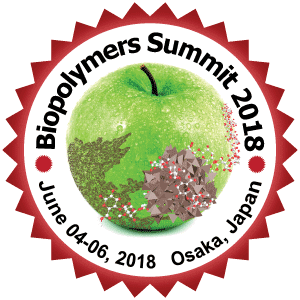
Dr. Vakhtang Barbakadze
Professor Tbilisi State Medical University Georgia
Title: Biopolymer of Medicinal Plants with Anticancer Efficacy
Biography
Biography: Dr. Vakhtang Barbakadze
Abstract
dihydroxyphenyl and carboxyl groups are regular substituents at two carbon atoms in the chain. The repeating unit of this regular polymer is 3-(3,4-dihydroxyphenyl)glyceric acid residue. This compound is a first representative of a new class of natural polyethers. Then the racemic monomer 2,3-dihydroxy-3-(3,4-dihydroxyphenyl)propionic acid (DDPPA) and its virtually pure enantiomers (+)-(2R,3S)-2,3-dihydroxy-3-(3,4-dihydroxyphenyl)propionic acid and (-)-(2S,3R)-2,3-dihydroxy-3-(3,4-dihydroxyphenyl)propionic acid were synthesized for the first time via Sharpless asymmetric dihydroxylation of trans-caffeic acid derivatives using an osmium catalyst, a stoichiometric oxidant N-methylmorpholine-N-oxide and enantiocomplementary catalysts cinchona alkaloid derivatives (DHQ)2-PHAL and (DHQD)2-PHA as chiral auxiliaries. PDPGA has wide spectrum of biological activity: anticomplementary, antioxidant, antiinflammatory properties, burn and wound healing effect. PDPGA and DDPPA exerted anti-cancer efficacy in vitro and in vivo against androgen-dependent and androgen -independent human prostate cancer (PCA) cells via targeting androgen receptor, cell cycle arrest and apoptosis without any toxicity, together with a strong decrease in prostate specific antigen level in plasma. However, our results showed that anticancer efficacy of PDPGA is more effective compared to its synthetic monomer. Overall, this study identifies PDPGA as a potent agent against PCA without any toxicity, and supports its clinical application

